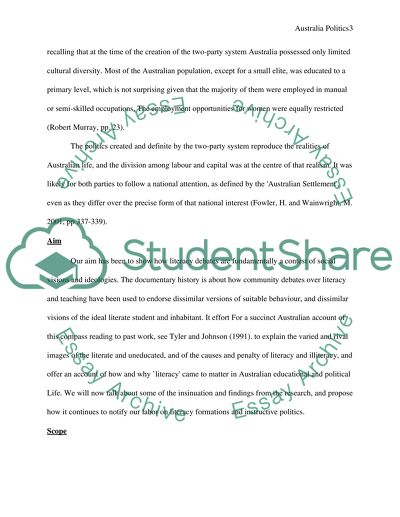Cite this document
(The Collapse of Modern Australia Politics Research Paper, n.d.)
The Collapse of Modern Australia Politics Research Paper. https://studentshare.org/politics/1502950-australia-politics
The Collapse of Modern Australia Politics Research Paper. https://studentshare.org/politics/1502950-australia-politics
(The Collapse of Modern Australia Politics Research Paper)
The Collapse of Modern Australia Politics Research Paper. https://studentshare.org/politics/1502950-australia-politics.
The Collapse of Modern Australia Politics Research Paper. https://studentshare.org/politics/1502950-australia-politics.
“The Collapse of Modern Australia Politics Research Paper”. https://studentshare.org/politics/1502950-australia-politics.


